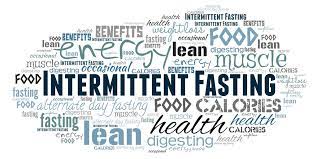
Introduction:
Bio-resonancet uses a machine to measure the frequency of energy wavelengths coming from the body. Those measures are then used to diagnose disease. Proponents of this therapy say it can also cure certain diseases.
However, there’s no sound scientific evidence that bio-resonance has a role in diagnosing or treating disease.
How does it work?
Bio-resonance is based on the idea that unhealthy cells or organs send out altered electromagnetic waves due to cellular damage at the DNA level
Proponents of bio-resonance believe that detection of these waves can be used to diagnose disease, while changing these waves back to their normal frequency will treat disease.
It can be useful in certain medical conditions:
Smoking cessation
Studies found that 77.2 percent of people in the bio-resonance group quit smoking after one week after therapy versus 54.8 percent in the placebo group.
Stomach pain
Bio-resonance has been used to treat stomach pain of unknown or undetermined origin.
Allergies and related conditions
Using bio-resonance to treat allergies and related conditions such as dermatitis and eczema and asthma can be controlled.
Controlled studies have had mixed or negative results as to whether Bio-resonance can help treat allergies.
Rheumatoid arthritis
Some studies suggest that bio-resonance might be effective in Rheumatoid arthritis by normalizing how the levels of anti-oxidants within the body.
These antioxidants help fight free radicals, which may help lessen tissue damage in people with RA.
Cancer
Some users of bio-resonance say that it can activate tumor suppressor genes or lessen the effects of overactive cells, both of which can “kill” cancer cells.
However, most cancer-causing genetic mutations cannot be reversed. Additionally, there are no studies demonstrating the effectiveness of bio-resonance in treating cancer.
Fibromyalgia
The combination of bio-resonance therapy, manual therapy, and point massage helps patients with fibromyalgia.
The study found a 72 percent improvement in muscular pain for the group that got bio-resonance therapy versus a 37 percent improvement for the other group.
Improvements in sleep patterns and sensitivity to weather changes were also found.
Over training syndrome in athletes
Overtraining syndrome, also known as burnout, occurs when an athlete doesn’t fully recover from training and competition. In such cases Bio-resonance therapy helps the burnt out athletes.
Conclusion:
Most healthcare professionals agree that bio-resonance can’t diagnose or treat medical conditions or illnesses.
As noted above, there are some studies that show positive effects from bio-resonance. However, these studies only include a small number of people, and research has been limited. Much more research needs to be done to study the efficaciousness of this unique therapy.



